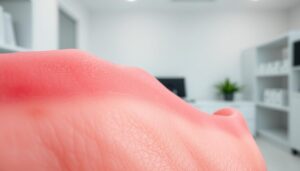Ever thought about making your own mouthwash? Sure, those store-bought ones are convenient, but have you looked at the ingredient list? All those unpronounceable chemicals! Creating a homemade mouthwash is not only easy but also a game-changer for your oral health. Let’s dive into why you should ditch the commercial stuff and start whipping up your own.
When you make your own mouthwash, you gain full control over what goes into it. No more artificial dyes, preservatives, or harsh alcohol-based ingredients that can leave your mouth feeling dry and irritated. Instead, you can focus on natural, wholesome components that are gentle and effective.
Additionally, making mouthwash at home can be surprisingly cost-effective. Those little bottles from the store may not seem pricey, but the costs add up over time. With a few basic ingredients—many of which you might already have in your kitchen—you can create a mouthwash that’s affordable and lasts longer.
But it’s not just about the practical benefits. Crafting your own oral care products is a fun and rewarding process. It gives you the opportunity to experiment with flavors, scents, and ingredients to suit your preferences. Plus, it’s a satisfying way to take charge of your health and wellness in a creative and personal way.
Ready to embrace a cleaner, greener approach to oral care? Let’s explore the why and how of homemade mouthwash, so you can take your oral hygiene routine to the next level.
Benefits of Homemade Mouthwash
Why should you consider homemade mouthwash? For starters, it’s incredibly cost-effective. A few simple ingredients from your kitchen can save you loads of cash. Plus, you’re in control of what goes into your mouth. No more harsh chemicals, just natural goodness that supports your gums and teeth.
- Cost-effectiveness: A bottle of mouthwash can cost a lot over time, but homemade options are budget-friendly.
- Natural ingredients: You’re steering clear of artificial additives, making it a safer choice for you and the environment.
Ingredients You’ll Need
Before you get started, gather these common and easy-to-find items:
Common Household Ingredients
- Baking soda: Helps neutralize acids and freshen breath.
- Salt: Acts as a natural disinfectant.
Natural Additives
- Essential oils: Options like peppermint or tea tree oil provide antibacterial properties.
- Herbal infusions: Sage and chamomile are great for soothing inflamed gums.
Basic Recipe for Homemade Mouthwash
Here’s a super-simple recipe to get you started:
- Ingredients:
- 1 cup of warm water
- 1 teaspoon of baking soda
- 3 drops of peppermint essential oil
- Instructions:
Mix everything together and store in a clean glass bottle. Shake well before use.
Tip: Want a stronger taste? Add a splash of mint tea or increase the essential oil drops slightly.
Recipes for Specific Needs
For Sensitive Gums
Combine aloe vera juice and chamomile tea for a soothing rinse. Both are gentle and help reduce inflammation.
For Fresh Breath
Brew a strong green tea, then add peppermint essential oil. This combo fights odor-causing bacteria and leaves your mouth feeling refreshed.
For Whitening Teeth
Mix water with a small amount of hydrogen peroxide (no more than 3%) and baking soda. Use this sparingly, as overuse can harm enamel.
Essential Oils and Their Benefits
Essential oils are the secret sauce for a great homemade mouthwash:
- Tea tree oil: Fights bacteria and reduces plaque.
- Clove oil: A natural remedy for gum pain and inflammation.
Safety tip: Always dilute essential oils before use. They’re powerful!
Herbal Infusions for Mouthwash
Love herbs? They’re perfect for mouthwash!
- Sage: Known for its antibacterial properties.
- Thyme: Helps combat oral bacteria.
How to brew: Steep 1 tablespoon of dried herbs in hot water for 10 minutes. Strain and let it cool before use.
How to Properly Use Homemade Mouthwash
Using your DIY rinse is simple:
- Swish around your mouth for 30 seconds to 1 minute.
- Don’t swallow it—spit it out.
- Rinse twice daily for best results.
Precautions and Safety Tips
Homemade doesn’t mean risk-free. Here are some tips:
- Test for allergies before use.
- Avoid mixing hydrogen peroxide with essential oils—they don’t pair well.
Storing Your Mouthwash
Keep your mouthwash fresh by storing it right:
- Use a glass bottle.
- Refrigerate if using perishable ingredients like aloe vera.
- Most recipes last about a week.
Comparing Homemade vs. Store-Bought Mouthwash
Homemade: All-natural, customizable, and eco-friendly.
Store-bought: Convenient but often full of chemicals.
Pro tip: Homemade is better for the planet too!
Common Mistakes to Avoid
- Adding too much essential oil—it can irritate your mouth.
- Skipping preservatives in water-based recipes.
Feedback and Adjustments
Try your recipe and tweak it! Maybe you need more mint or less salt. Share it with friends for additional feedback.
Importance of Healthy Gums
Your gums aren’t just there to hold your teeth—they’re vital to your overall health. Healthy gums reduce the risk of heart disease and other conditions.
Additional Tips for Healthy Gums
- Floss daily to remove plaque.
- Eat crunchy fruits and veggies—they naturally clean your teeth.
Making your own mouthwash is empowering and fun. It’s a small step that leads to healthier gums and a brighter smile. So grab those ingredients and give it a shot—you won’t regret it!
Beyond oral health, creating homemade mouthwash is a step towards a more sustainable and mindful lifestyle. By choosing natural ingredients, you reduce exposure to unnecessary chemicals and cut down on single-use plastic waste from store-bought bottles. It’s a simple yet impactful way to contribute to a healthier planet.
Not only that, but customizing your mouthwash allows you to tailor it to your specific needs. Whether you prefer a fresh minty flavor, a soothing herbal blend, or a hint of citrus, the possibilities are endless. This versatility ensures that you enjoy the process and the benefits it brings to your daily routine.
So why not start today? Embrace this DIY approach and experience the satisfaction of crafting something beneficial with your own hands. Your smile—and the environment—will thank you!




